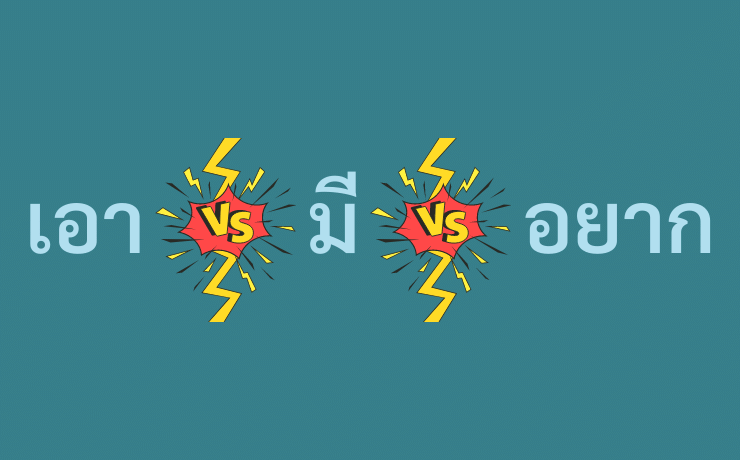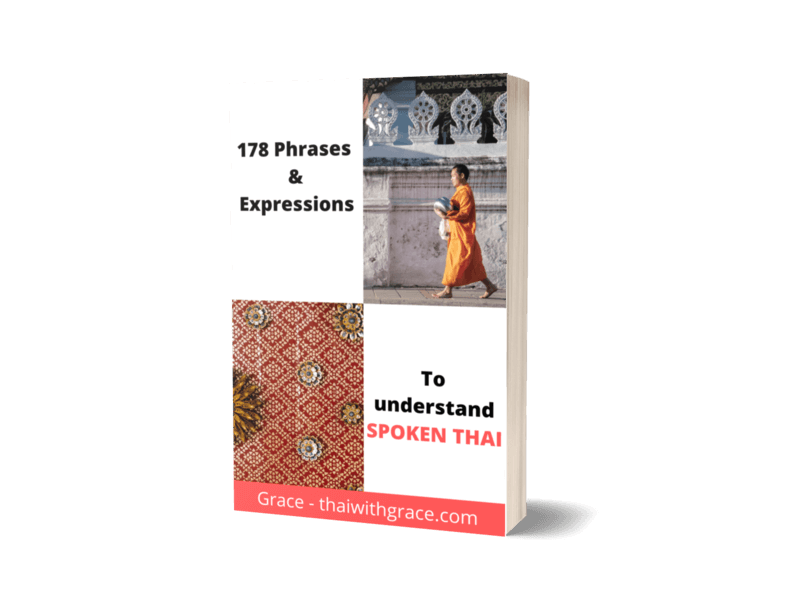So many of my students get confused with the words เอา, อยาก, and มี (ao, yàak, and mee).
In this article, I wish to clarify that and give you examples so that you understand the differences.

เอา (ao)
เอา (ao) means to take/get something in your possession.
For example:
- I will get one pack of gum.
เอาหมากฝรั่งหนึ่งห่อ
ao màak-fà-ràng-nèung-hòr - What would you like to have (to get)? Ham or meat?
เอาอะไร แฮมหรือเนื้อ
ao à-rai · haem rĕu néua - I don’t want (to get) too much
ไม่เอาเยอะเกินไป
mâi ao yúh gern bpai
อยาก (yàak)
อยาก (yàak) means ‘to want’. อยาก can only be followed by a verb.
Thus, the formula is: อยาก (yàak) + Verb
Examples:
- I want to go abroad
อยากไปต่างประเทศ
yàak bpai dtàang bprà-tâyt - I want to understand Thai
ผมอยากเข้าใจภาษาไทย
pŏm yàak kâo jai paa-săa tai
You can’t say ผมอยากคุณ (pŏm yàak kun) for “I want you”. You need to add the verb ‘get’ which is ได้ (dâai): ผมอยากได้คุณเป็นแฟน (pŏm yàak dâai kun bpen faen) (I want to get you as a girlfriend). Or another way is to change it to I need you ผมต้องการคุณ (pŏm dtông gaan kun).
Take a look at my article on ต้องการ to know how to use it correctly.
มี (mee)
The last word is มี (mee). มี has 2 meanings.
First: there is/there are.
Second: to possess something. The meaning that causes confusion with เอา (ao) is this second meaning.
Memorize this: เอา (ao) is to take something in possession. มี (mee) is simply the state of having something in possession.
Examples:
- I have two brothers
ฉันมีพี่ชาย 2 คน
chăn mee pêe chaai sŏng kon - I don’t have time
ฉันไม่มีเวลา
chăn mâi mee way-laa
I hope you now know the differences between เอา, อยาก, and มี (ao, yàak, mee). Thank you and I will see you in the next article.

